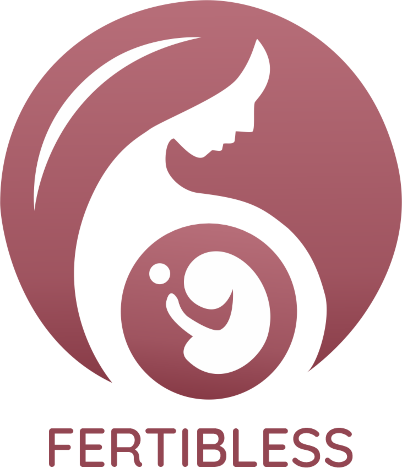What is egg freezing?
Egg freezing is a process where a woman’s eggs are extracted, frozen, and stored for future use. It’s often chosen by women who want to delay pregnancy, either due to personal reasons like focusing on a career or for medical reasons such as upcoming cancer treatments. The procedure involves hormone stimulation to produce multiple eggs, which are then retrieved and frozen for later use. The goal is to preserve fertility so that the eggs can be thawed and used for in-vitro fertilization (IVF).
Why is egg freezing done in which patient it is to be done?
gg freezing is a valuable option for women looking to preserve their fertility for various reasons. It allows women to take control of their reproductive choices and plan for the future based on their personal circumstances and goals. Here’s an overview of why and for whom egg freezing is typically done:
- Delaying Parenthood: Many women today are prioritizing their education and careers before starting a family. Egg freezing enables them to capture their fertility at a younger age, enhancing their chances of a successful pregnancy later on when they feel ready.
- Medical Necessity: Women facing medical treatments such as chemotherapy or radiation often risk losing their fertility. Freezing eggs before starting treatment provides a backup option for those who wish to have children in the future.
- Health Conditions: Women with reproductive health issues, like endometriosis or diminished ovarian reserve, may choose to freeze their eggs. This ensures they have viable eggs available later when they decide to conceive.
- LGBTQ+ Family Planning: Transgender individuals might opt for egg freezing as part of their transition, allowing them to have biological children if they desire in the future.
- Uncertain Future Plans: Women who are unsure about their family plans, whether due to relationship status or other life circumstances, can benefit from egg freezing as it keeps their options open.
- Overall, egg freezing is a proactive measure that can provide peace of mind and greater reproductive flexibility, catering to the needs and aspirations of women in various situations. If you want to learn more about the process and considerations involved, you can consult with Dr. Shipra Gupta.
What is the ideal age to freeze my eggs?
The ideal age to freeze your eggs is in your late 20s to early 30s, when egg quality and quantity are still high. Freezing earlier increases the chances of success later, but it’s a personal decision based on your life plans.
How many eggs should I freeze?
It’s recommended to freeze around 10 to 15 eggs to have a good chance of future pregnancy. However, the number varies based on your age and egg quality. Dr.Shipra Gupta doctor can give you personalized advice based on your specific situation.
What are the success rates of using frozen eggs?
Success rates with frozen eggs depend on your age at the time of freezing. For women under 35, the chances of a live birth are around 60-70%. However, the rates decrease as age increases. While freezing improves your chances, it doesn’t guarantee a pregnancy.
How long can eggs be stored?
Eggs can be safely stored for many years, with no known expiration. Studies show that eggs frozen for over 10 years can still be viable, so they can potentially be used whenever you’re ready for pregnancy.
What is the process of egg freezing?
The egg freezing process involves a few key steps:
- Ovarian stimulation: You’ll take hormone injections for about 10-14 days to stimulate your ovaries to produce multiple eggs.
- Egg retrieval: A minor procedure, where a doctor retrieves the eggs using a thin needle through vagina. It causes no cut, no pain, no bleeding.
- Freezing: The eggs are frozen using a process called vitrification and stored for future use.
How much does egg freezing cost?
In India, the cost of egg freezing typically ranges from ₹1.5 lakh to ₹4 lakh per cycle. This includes medications, the egg retrieval procedure, and the freezing process. Annual storage fees will vary around ₹20,000 to ₹50,000.
Are there any risks or side effects?
Yes, there are some risks and side effects to egg freezing:
- Mild side effects: Bloating, mood swings, or mild discomfort from the hormone injections.
- Ovarian Hyperstimulation Syndrome (OHSS): It may occur lead to pain, swelling etc. however, with the advent of antagonist protocol of injections and frozen embryo transfer it occurs rarely. Our clinic is an OHSS risk free clinic.
- Infection or bleeding: These can occur after the egg retrieval procedure, though it’s uncommon and appropriate antibiotics are given postoperatively so that this risk is minimum.
- Most people experience only mild, temporary side effects and you will be closely monitored to minimize the risks and side effects.
Will egg freezing affect my fertility later?
No, egg freezing doesn’t affect your natural fertility later. The procedure only retrieves eggs that would have been lost during that menstrual cycle anyway, so it doesn’t reduce your future egg count or ability to conceive naturally.
How do I prepare for the egg freezing process?
To prepare for egg freezing, here are some key steps:
- Healthy lifestyle: Maintain a balanced diet, exercise, and avoid smoking or excessive alcohol.
- Medications: You may be prescribed hormone injections, which will guide you through.
- Timing: Plan for the process, as it requires about 2-3 weeks of commitment.
Dr. Shipra Gupta will guide you according to your case specific scenario.
What happens if I never use my frozen eggs?
If you never use your frozen eggs, you have a few options. You can choose to keep them stored for future use as long as you continue paying storage fees. Alternatively, you can donate them to another individual or couple who are trying to conceive, or you can opt to have them disposed of. It’s important to discuss your preferences with our clinic to ensure your wishes are respected.

